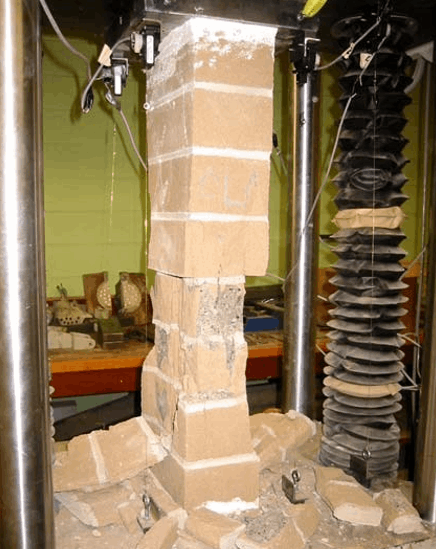Thomas Hervillard1, David McLean2, David Pollock3 and Cole McDaniel4
1Graduate Student, 2Professor, 3Associate Professor, 4Assistant Professor
Department of Civil and Environmental Engineering
Washington State University, Pullman, WA 99164-2910 USA
ABSTRACT
This study investigated the stress-strain behaviour of fiber-reinforced masonry prisms subjected to compressive loading. Thirty masonry prisms were tested: fifteen of concrete blocks and fifteen of hollow clay bricks. The cells of the masonry prisms were grouted solid, with one-third of the piers containing grout with no fibers, one-third with grout containing fibers at 2.97 kg/m3 (5 lbs/yd3), and one-third with grout containing fibers at 4.76 kg/m3 (8 lbs/yd3). The prism specimens were loaded in compression to failure under a controlled rate of displacement. Test results show that, for concrete masonry, the use of fibers within the grout increases the strain capacity. For clay masonry, the addition of fibers did not significantly increase strain capacity.
KEYWORDS: ductility, concrete blocks, clay bricks, fibers, compression behaviour.
2b-6



